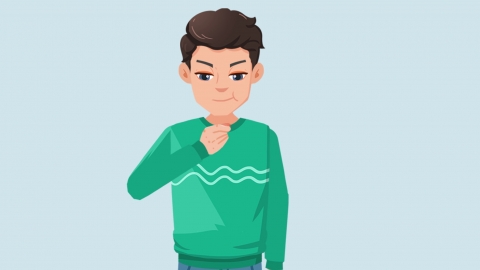What causes loss of appetite and having no desire to eat?
Generally, the main causes of loss of appetite and lack of interest in food include emotional fluctuations, monotonous diet, chronic gastritis, functional dyspepsia, and pyloric obstruction. If symptoms persist or are accompanied by other discomforts, it is recommended to seek timely medical attention at a qualified hospital. Detailed analysis is as follows:
1. Emotional Fluctuations
Long-term anxiety, tension, or depression can affect the central nervous system's regulation of digestive functions, inhibiting gastrointestinal motility and secretion of digestive fluids, leading to decreased appetite. Mood can be relieved by listening to music, walking, maintaining regular作息 (作息 here might need contextual clarification, but is likely referring to作息 patterns or rest schedules), avoiding excessive fatigue, and trying bland, easily digestible foods to gradually restore appetite.
2. Monotonous Diet
Consuming greasy, spicy, or repetitive foods over a long period can easily irritate the gastrointestinal mucosa, reduce taste sensitivity, and trigger appetite loss. Adjust the diet structure by increasing the proportion of fresh vegetables, fruits, and whole grains. Change cooking methods, such as steaming or boiling instead of frying, and eat smaller, more frequent meals to reduce the burden on the gastrointestinal tract.

3. Chronic Gastritis
Chronic inflammation of the gastric mucosa caused by Helicobacter pylori infection or drug irritation can affect the stomach's digestive function, leading to postprandial fullness and poor appetite. Under a doctor's guidance, omeprazole enteric-coated capsules, mosapride citrate tablets, and amoxicillin capsules may be taken. Alcohol consumption and spicy foods should be avoided during treatment, and meals should be eaten regularly.
4. Functional Dyspepsia
Gastrointestinal motility disorders and visceral hypersensitivity can lead to disordered digestion, manifesting as upper abdominal fullness and loss of appetite. Follow medical advice to take domperidone tablets, compound digestive enzyme capsules, and hydrotalcite chewable tablets. After meals, take appropriate walks to promote gastrointestinal motility and avoid overeating.
5. Pyloric Obstruction
Ulcers or inflammation causing pyloric stenosis can obstruct the outflow of gastric contents, resulting in vomiting, bloating, and significant loss of appetite. Immediate medical attention is required. Mild obstruction can be relieved by gastrointestinal decompression, while severe cases may require pyloroplasty or gastrojejunostomy. After surgery, transition gradually to liquid and semi-liquid diets.
In daily life, maintaining a positive mood, balanced diet, and avoiding long-term use of medications that irritate the gastrointestinal tract are essential. Regular gastrointestinal examinations should be conducted to detect diseases early. Avoid lying down immediately after meals to reduce gastrointestinal discomfort.










